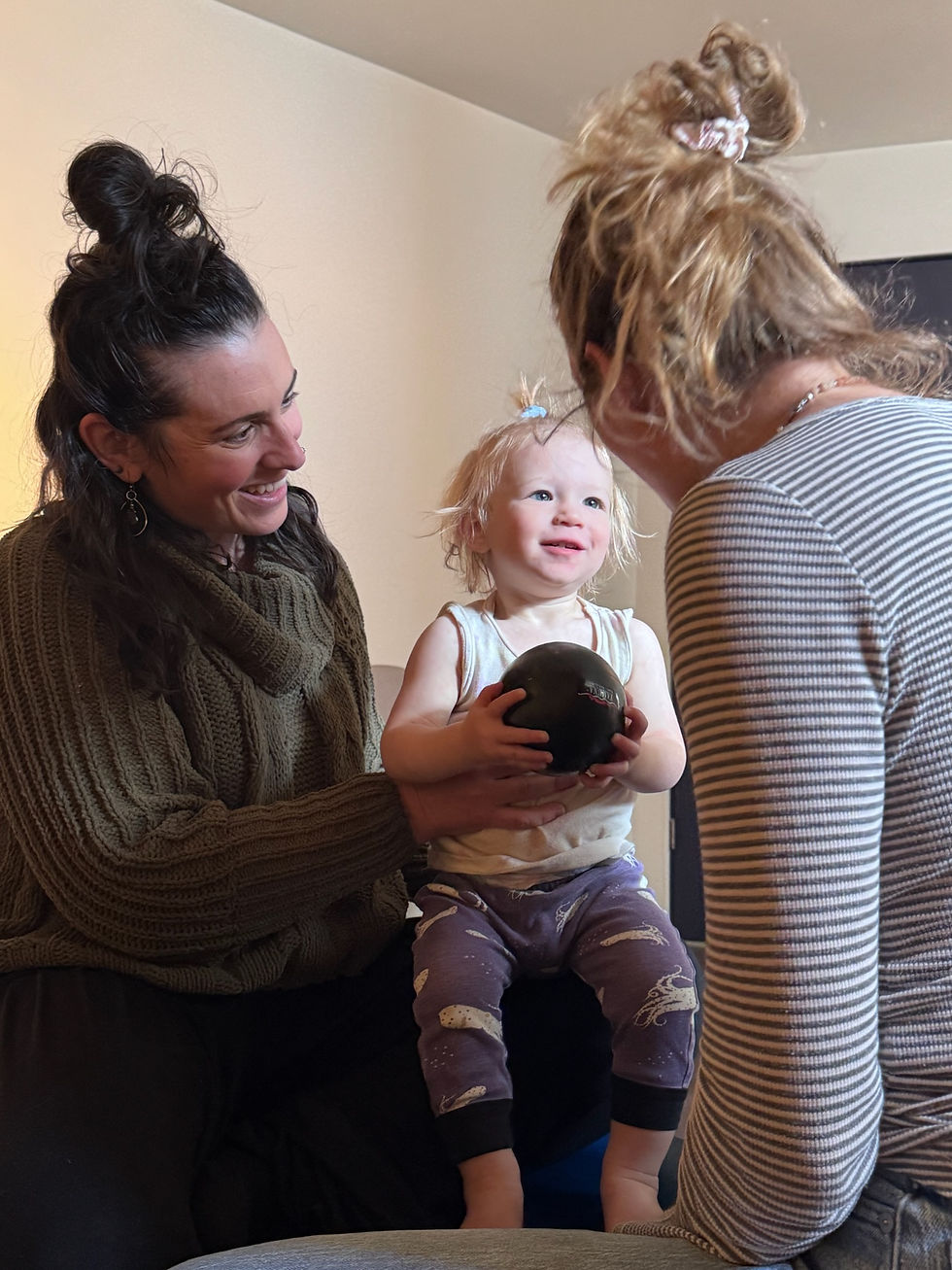NEWBORN, BABY, AND TODDLER PEDIATRIC CHIROPRACTOR IN BOULDER, CO





























How Gentle Pediatric Chiropractic Care Supports Your Baby's Development
The birth process—whether vaginal, cesarean, or involving interventions like forceps—can place stress on your baby's developing spine and nervous system. Even the most natural births can create subtle tension or misalignments that affect feeding, sleep, and comfort.
Pediatric chiropractic care uses extremely gentle techniques (light fingertip pressure—no more than you'd use to test a tomato's ripeness) to restore balance to your baby's nervous system. When the body and brain communicate freely, babies can eat, sleep, and reach milestones with greater ease.
Common Reasons Boulder Parents Seek Care for Newborns, Babies and Toddlers
Parents often bring their babies to Evolv Chiropractic for support with:
Breastfeeding Difficulties & Latch Issues:
Poor latch, painful nursing, or tongue tension can stem from birth-related jaw and neck restrictions. Gentle adjustments help restore mobility for easier, more comfortable feeding. Learn more on our breastfeeding & latch issue page.
Colic, Reflux & Digestive Discomfort
Excessive crying, gas, and constipation often improve when nervous system balance is restored, supporting better digestion and comfort.
Torticollis & Flat Head (Plagiocephaly)
Babies who favor one head position or have restricted neck movement benefit from adjustments that release tension and promote symmetrical development.
Sleep Problems
When babies struggle to settle or wake frequently, addressing spinal and nervous system tension can help them relax and sleep more soundly.
Developmental Milestone Support
Chiropractic care supports the integration of primitive reflexes—essential for rolling, crawling, sitting, and walking. When reflexes integrate smoothly, motor development progresses naturally.
Comprehensive Support for Your Baby in Boulder
Tongue-Tie Release Support
We provide pre- and post-frenectomy bodywork to prepare babies for the procedure and support optimal healing and tongue function afterward.
Birth Trauma Recovery
Babies born via C-section, forceps, vacuum extraction, or NICU stays often carry physical tension. Gentle chiropractic care helps release this stored stress.
Age-Specific Care (Newborns Through Childhood)
From newborn assessments to supporting active toddlers and school-age children, we adapt our care to each developmental stage.
Your Baby's First Visit at Evolv Chiropractic:
Initial Consultation
We begin with a thorough health history, including your birth story, current concerns, and developmental milestones. A gentle physical assessment follows.
Gentle Adjustments
Using light fingertip pressure and craniosacral techniques, we restore balance to your baby's spine and nervous system. Most babies relax and often fall asleep during adjustments.
Your Care Plan
We'll create a personalized plan based on your baby's needs, including visit frequency, home exercises, positioning tips, and developmental activity recommendations.
Collaborative Care
We work alongside your pediatrician, lactation consultants, and other providers to ensure comprehensive support for your family.
Why Choose Evolv Chiropractic
-
ICPA Certified: Advanced training in pediatric techniques through the International Chiropractic Pediatric Association
-
Family-Centered: We treat your whole family with compassion and evidence-informed care
-
Community Trusted: Serving Boulder County families with proven results
-
Collaborative Approach: We partner with local healthcare providers for comprehensive care
Common Questions About Newborn, Baby and Toddler Chiropractic
Is chiropractic safe for babies?
Yes. Pediatric adjustments use gentle fingertip pressure and are extremely safe when performed by a trained chiropractor.
How young can my baby be adjusted?
We can see babies within hours of birth. Many parents bring newborns within the first few weeks.
How many visits will my baby need?
his depends on your baby's specific needs. Some see improvement within 1-3 visits; others benefit from ongoing developmental support.
Serving Boulder County Families
Evolv Chiropractic proudly serves families throughout Boulder, Louisville, Lafayette, Superior, and Longmont. Our welcoming clinic provides a calm, family-friendly environment where your baby's comfort is our priority.
Give Your Baby the Best Start
Ready to support your baby's natural development? Schedule a consultation today to learn how gentle chiropractic care can help your family thrive.
To learn more about chiropractic care for newborns, babies, and toddlers and how it supports nervous system regulation at every stage of life, visit www.icpa4kids.org or schedule a family wellness visit to experience the difference of balanced, connected care.
Have questions first? Reach out — we're here to support you and your growing family.

